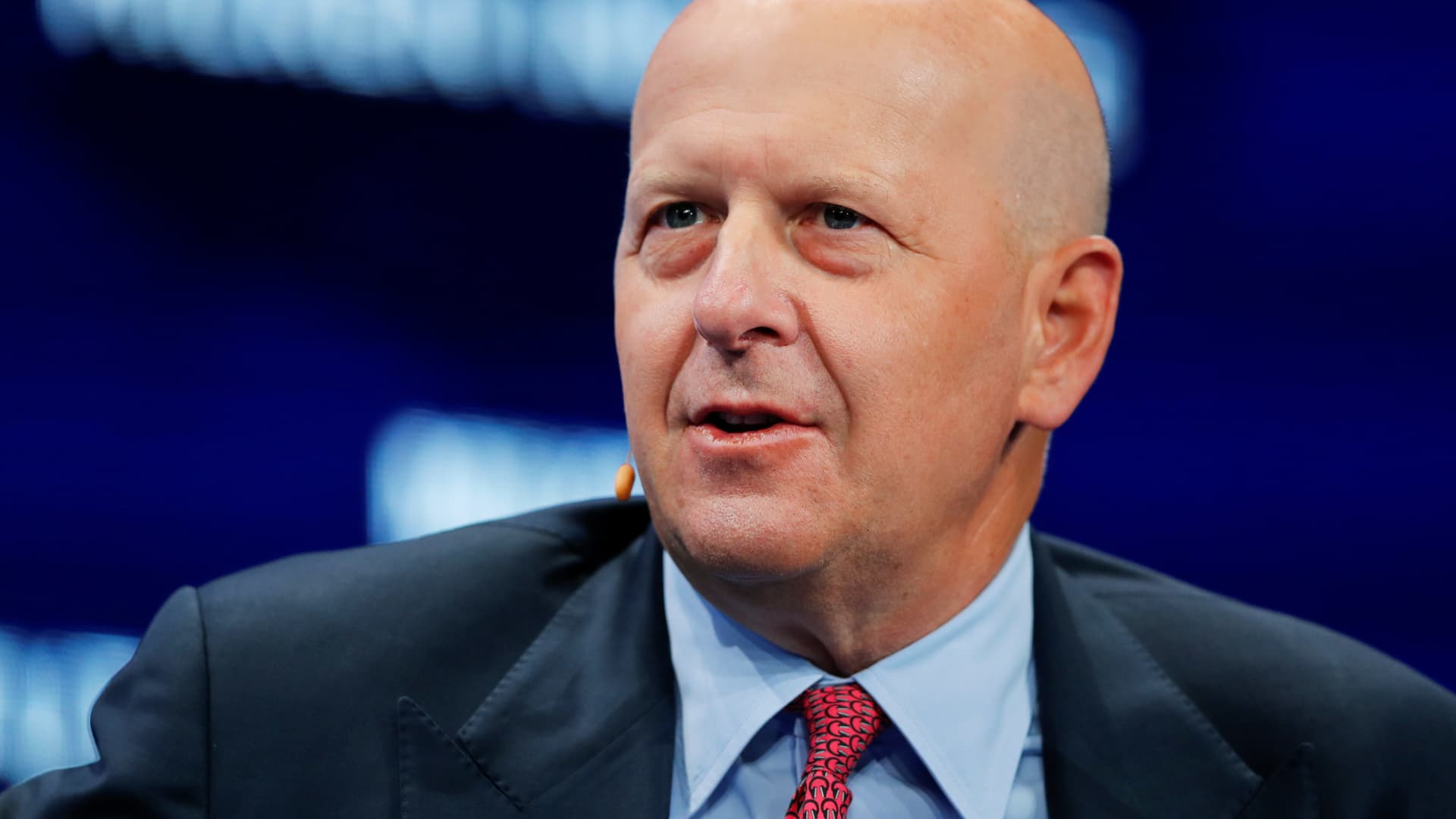Goldman Sachs is set to report first-quarter earnings —here’s what the Street expects

Goldman Sachs is scheduled to report first-quarter earnings before the opening bell Thursday.
Here’s what Wall Street expects:
- Earnings: $8.89 per share, 52% lower than a year earlier, according to Refinitiv
- Revenue: $11.83 billion, 33% lower than a year earlier.
- Trading revenue: Fixed income: $3.04 billion, equities: $2.58 billion, according to StreetAccount.
- Investment banking revenue: $2.41 billion.
Goldman Sachs has been one of the big beneficiaries of a torrid two years of Wall Street deals activity, putting up record revenue figures and blowing past performance targets.
But how will the bank navigate trickier markets?
That’s what analysts are eager to learn after mergers, IPOs and debt issuance slowed down in the first quarter.
Goldman Sachs is the world’s biggest mergers advisor by revenue and is the most Wall Street-dependent firm among the six biggest U.S. banks. One of CEO David Solomon‘s biggest priorities has been to diversify the firm’s revenue streams, boosting consumer banking, wealth and asset management operations.
Analysts will be keen to ask Solomon how the deals pipeline looks for the remainder of 2022, and if mergers and IPOs are being killed, or merely pushed back into future quarters.
Another area of concern for the bank is trading, where spikes in volatility and market dislocations caused by the Ukraine war may have benefited some traders, while leaving others holding losses. It remains to be seen whether the quarter’s tumult led to the type of volatility that encouraged clients to trade, or it left them on the sidelines.
In February, Solomon increased the bank’s guidance for returns and targets in wealth and asset management divisions after handily exceeding goals set in early 2020.
Goldman shares have fallen 15.8% this year through Thursday, compared with the 10.5% decline of the KBW Bank Index.
On Wednesday, JPMorgan Chase said first-quarter profit slumped 42% as it posted losses tied to Russia sanctions and set aside money for future loan losses.
This story is developing. Please check back for updates.




